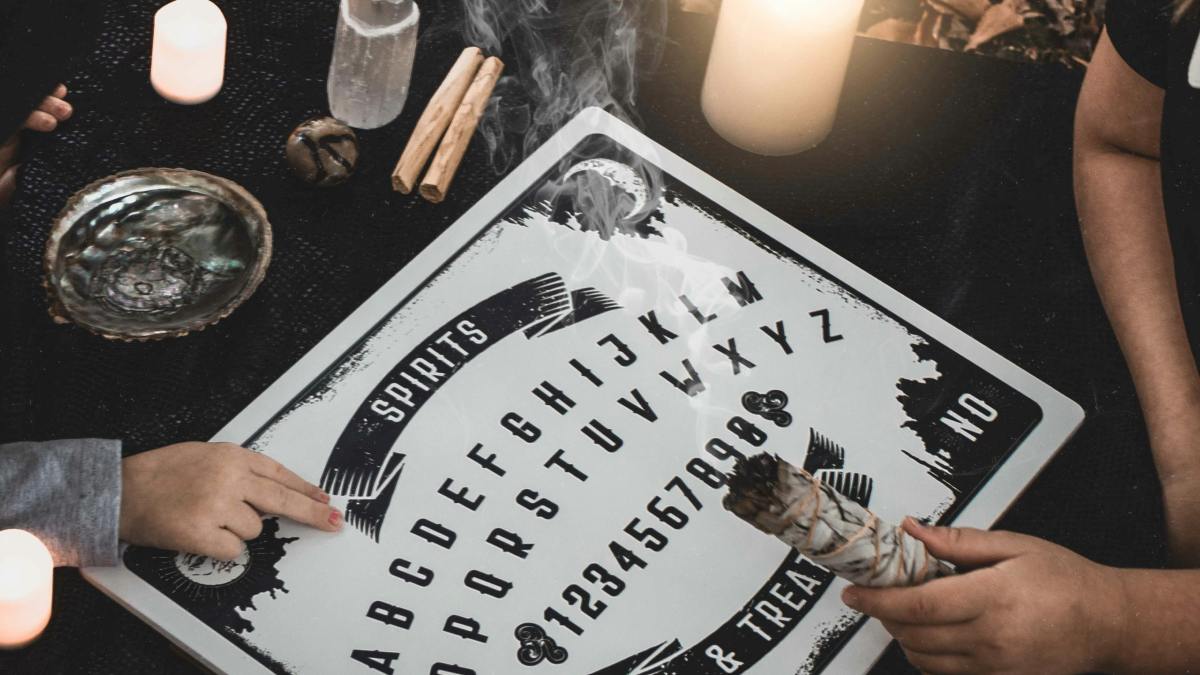
Is It Possible To Talk To Dead People? Research Suggests It Might Be
Psychological research shows that 'after-death communication' isn't as strange as it sounds, and it might be more common than you think.

By Mark Travers, Ph.D. | February 15, 2024
When we lose someone we love, we are often left with a void that seems impossible to fill. In such moments of profound grief, some people experience a phenomenon that transcends the physical world—"after-death communication." This is when they receive signs, messages or experiences that they attribute to their departed loved ones.
Many people who experience after-death communication often hesitate to discuss it with their friends, family, psychologists or therapists, fearing judgment, misunderstanding or a dismissal of their experience as mere hallucination or a product of grief. Some may worry that these communications will be pathologized, reducing their personal experiences to mere symptoms of a psychological disorder.
This fear of not being taken seriously or being misunderstood can often prevent individuals from seeking the support they need during this time. But, in fact, there is a framework for understanding these experiences not as anomalies, but as a part of the human response to loss.
Here's a research-backed exploration of how after-death communication can serve as a comforting bridge, connecting the world of the living and the departed.
1. After-Death Communication Is More Common Than You Think
A major concern for people who experience this phenomenon is that they are alone in their experiences, or that they might be perceived as "abnormal." This couldn't be further from the truth.
A 2023 Pew Research Center survey found that one in two U.S. adults experience some form of after-death communication.
More specifically, 34% experience the "presence" of a lost loved one, 28% have revealed details about their life to a relative who has passed away and 15% have received direct communication from someone they've lost.
This experience goes beyond religious beliefs—Christians, Jews, Muslims, Buddhists, Hindus, agnostics, atheists and people who are spiritual but not religious all report communication from the afterlife. What this means is that this phenomenon, at its core, is a valid and universal human experience.
Clearly, there's a community of diverse people who have had similar experiences, and professionals who understand and can provide support.
2. After-Death Communication Can Hold Therapeutic Potential
The process of grieving isn't a cut and dry path. People experience bereavement in many ways, each with its unique emotional landscape. Some may find themselves engulfed in sadness, while others may feel a profound sense of emptiness. Anger, guilt, fear and even relief can also be part of this journey.
Amid these varied emotions, after-death communication can serve as a therapeutic anchor. A 2021 study found that, in addition to being a fairly common experience, after-death communication is an overwhelmingly positive experience that can reduce grief and fear of death.
Interestingly, the study found that many people experience physical contact as part of after-death communication. Such experiences were more likely than other forms of after-death communication to allow people to go down the path of spirituality.
Spirituality can be a powerful tool for navigating bereavement. It can provide a framework for understanding and accepting death, and can offer comfort and hope in the face of loss. In fact, research has shown that people with strong spiritual beliefs resolve their grief quicker than those who report no spiritual beliefs.
3. Can You Induce After-Death Communication?
After-death communication can indeed be a comforting experience for some, but it's crucial to understand that it doesn't occur for everyone. As of now, the scientific community does not have a definitive explanation for the mechanisms behind after-death communication.
Some visit psychics and mediums in the hope that they can facilitate a connection with their departed loved ones. However, a 2020 study published in Brain and Cognition suggests that self-proclaimed psychics may, in fact, perform worse than people who don't claim mediumistic abilities.
This is not to say psychics have no place in the grieving process. They can provide a sense of comfort and help individuals process their emotions and come to terms with their loss. However, it's important to approach these sessions with an understanding that the field is unregulated and could be prone to exploitation. Speaking to a mental health professional about your supernatural experiences, even when induced through a medium, can help you unpack the complex emotions that may follow.
Crucially, remember that healing takes time and everyone's journey through grief is unique and personal. Ultimately, find what helps you cope and brings you peace during this difficult time.
Conclusion
After-death communication is a recognized phenomenon across cultures and within the scientific community, but we don't have a definitive explanation of how it occurs. The mystery surrounding its mechanisms doesn't diminish the genuine solace and support it can offer to those grappling with grief. It simply highlights how the experience of bereavement is a deeply personal journey.
A similar version of this article can also be found on Forbes.com, here.
